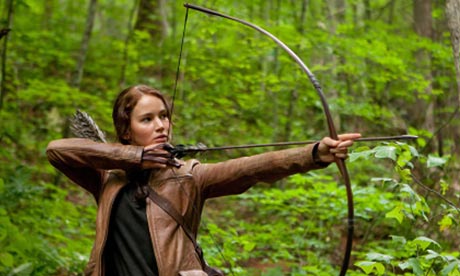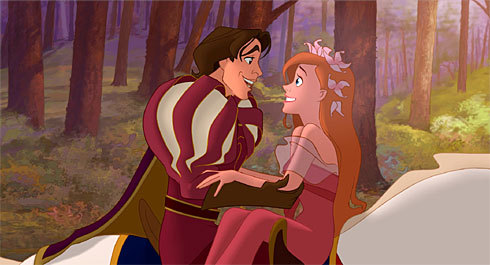Have you ever read a book or seen a movie that you really liked? Some (or lots) of people have favorite books or movies that, as an 11 year old girl, I can relate to. I have been reading one of my favorite books lately. It's called The Hunger Games. In the book, a girl named Katniss lives in a place called panem. Panem is split up into twelve districts and each has a certain thing that they do. For instance, district 12 mines coal for fire in the capital. The capital is the ruling city. The capital people are always dressed quite weird, with wigs and tattoos all over their bodies. Katniss lives in district 12, her father had died in a mine explosion, and she has a best friend named Gale. The reaping is when all of district 12 population is gathered together and a boy and a girl's names are pulled from two glass balls. Two per district. The two "tributes" are taken to the capital to train and then they are placed in an arena to fight to the death...
The hunger games is a book that I will never stop loving. I think that if you where to try it that you would really like it too!:)
~ Sophie (San Diego, CA)
I think this short paragraph is a delightful piece of writing from a young person who is clearly interested in a piece of text. I wonder, however, how often anyone other than her teacher gets to read stuff like this! So that leads me to a question: why do we write multiple papers in school? From grade 2 or so all the way up to the graduate level, students draft and produce hundreds of papers. Obviously in the process they learn many things such as how to craft an argument, think through evidence in a logical way, and of course use correct grammar and punctuation.
But after that, is there any benefit to writing all these papers? I have spent countless hours, exhaustively slaving away at drafts and final copies of many papers - with my sole intention of getting a good grade and turning it in on time. You may be different (I hope you are!). When I look back on these assignments that went from my hand to my teacher to the trash, I wonder if there couldn't have been a better way to treat my writing.
You may have heard of the "Burkean Parlor" - an analogy given by Kenneth Burke about how scholarly writing is like a conversation. The video below explains in case you need to brush up.
Why the analogy and video? Well, we need to do better at helping students learn from an early age that they have the ability, capacity, and skills to enter conversations. Rather than writing a paper that is read by just their teacher (and maybe a parent), students can engage in real conversations and can enter these arguments with their own evidence, writing, and perspective. What if the student above was able to submit this piece of writing about a book she loved to other students who could share their thoughts? Obviously safety and privacy are an important issue when working with minors, but it is possible.
How? Blogging is the most obvious, and many teachers are experimenting with that. Social media in general offers students the ability to discuss issues and offer evidence. These concepts aren't really new, and yet many people aren't aware of them.
What do you think? Is this is a good idea? Should dissertations, theses, or general papers in K-12 schools be geared towards larger discussions than just those in charge of the formal grades? I think so, but am curious about you. BTW, I may be very late in "the conversation" about the role of blogging in the classroom and perhaps I should do some more listening before sharing my thoughts.



